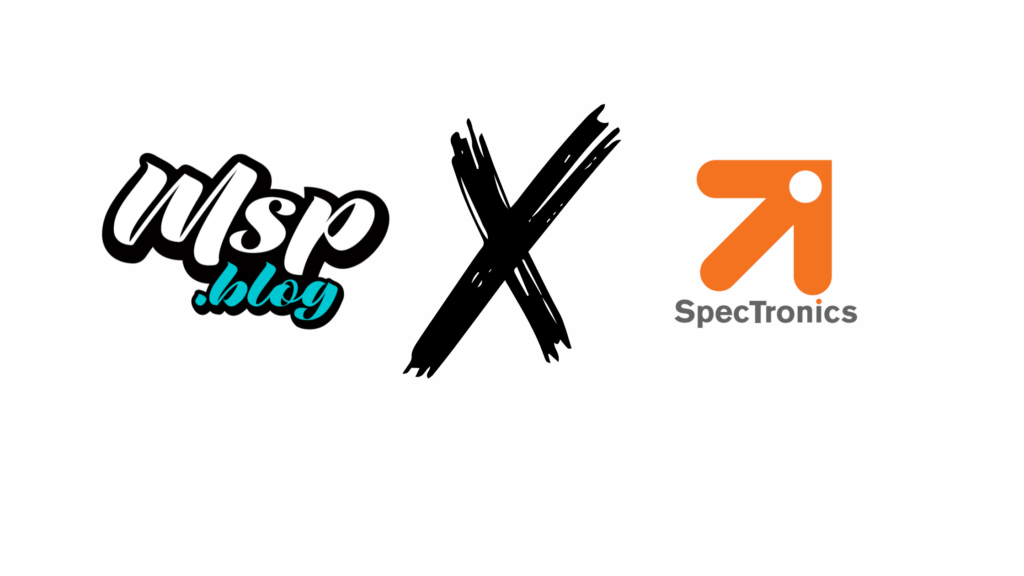
What was your MSP and when did you start it?
I started SpecTronics as an IT consulting business, somewhat accidentally, after I left university, where I was studying Electrical & Electronic Engineering. The intention was to consult independently on IT transformation for SMB clients. Inevitably, there was a long tail of support after each consulting project, which got longer and longer, and became too distracting from the main consulting projects, so I hired a part time technician to handle that support. This naturally progressed into a break/fix IT support business, which I pivoted into a recurring revenue managed services model. That transition was long, painful, and never really ended.
Were you always planning on an exit and what was the driver to exit?
Absolutely not! I, like I suspect most MSP owners, had started a business somewhat accidentally, because I was a good engineer. I had always assumed it would be my life, and my inner saboteur told me I was fundamentally unemployable by anybody else.
Then came COVID. The IT industry was probably the only one that was positively impacted, there was an enormous increase in M&A activity, and at the same time I had fallen out of love with my business.
How did you find your acquirer and what did the process look like?
I had a chance conversation with Daniel Welling (Welling MSP) who specialises in playing Cupid to MSP buyers and sellers. He connected me with (and brokered the deal) with the MSP that eventually acquired mine.
That said, when news got out, three compelling opportunities presented themselves, fairly coincidentally, around the same time. I assessed the opportunities, primarily on three criteria:
- Would my team be looked after? I felt a great sense of responsibility for their futures.
- Would clients be looked after? I had some very long, close, relationships, and I didn’t want anybody to be let down.
- What was the cleanest break for me? I didn’t want to be tied into a years-long earn-out – I wanted a short, sharp, exit that would let me get on with my life, and I was happy to compromise on price for that.
Can you tell us a little about your exit?
We structured it as a share purchase (they took over the entire company), as opposed to an asset purchase, so that I wasn’t left with a husk of a company to wind down. There was a 3-month handover consultancy period, however we mutually agreed after around 6 weeks that I was no longer needed. I guess that’s testament to having built a well-structured business.
What was the main thing you learned about M&A going through the process?
Just because you start off friendly with your acquirer doesn’t mean it will always be that way. The journey will be fraught with challenges, and priorities change, so it’s incredibly important to have the right expert team around you to guide the transaction and ensure your interests are appropriately protected. I’m talking accountants, lawyers, and even family!
Knowing what you know today, what would you have done differently?
I would have started preparing the business for sale 12 months earlier. There’s a lot of controversy over the value of client contract standardisation and length, but I speak from experience when I say that all of my acquirers wanted to know the guaranteed returns they could expect over the next 2-4 years. Acquisitions are turbulent for everyone, clients included, and the acquirers naturally want to be protected from that churn as much as possible.
My contracts were mostly well standardised, but a lot of them only had 6-12 months left to run, because they’d only started as 12 month commitments. With hindsight, I would have contacted all of my clients to lock them into solid 24-36 month contracts before starting to negotiate with acquirers. I could easily have commanded double or even triple what I eventually sold for.
Is there any advice or things to watch out for that you would like to share with fellow MSP Business owners?
Start structuring your business for sale NOW. Whether you intend to sell or not is irrelevant. Circumstances change and you might want to sell tomorrow.
- Develop and document processes throughout the business
- Work out what needs to change so that the business could operate without you
- Standardise your contracts and service offering
- Lock in well termed 24/36 month minimum contracts with renewal clauses
What are you up to now and how can people find out more?
I now wear two hats:
- Product Manager & Head of Solutions for Zomentum, the leading Revenue Platform for Partners and SaaS Vendors. I get to leverage my previous experience running an MSP to shape Zomentum’s development roadmap. I’m actively involved on finding creative ways to enable MSPs to increase revenue from new opportunities and existing clients.
- MSP Mentor and Consultant working with MSPs to help them grow their own businesses.
I’m always happy to chat about my journey and help others on their own. Feel free to connect on LinkedIn or contact me via my website.


